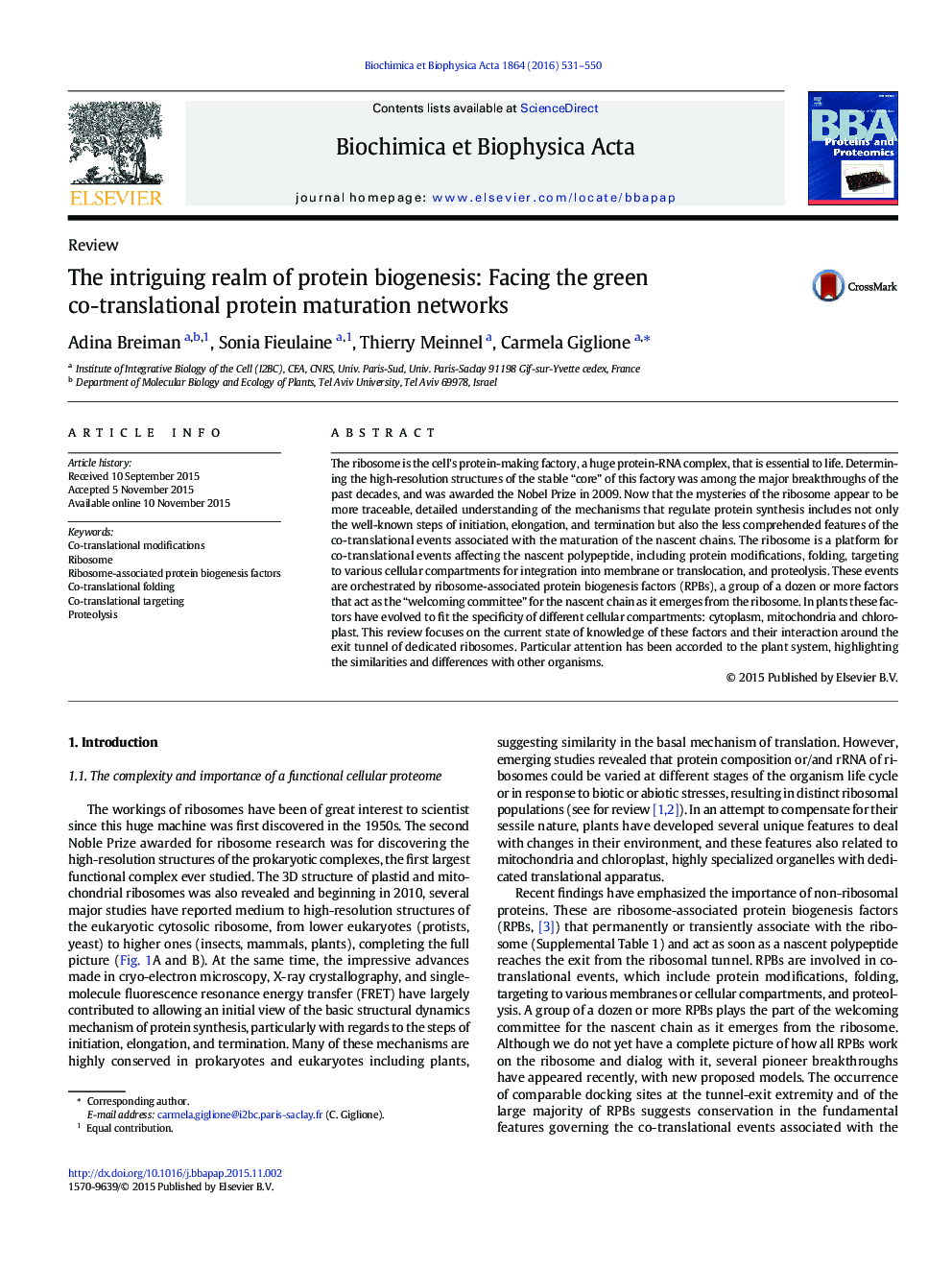| Article ID | Journal | Published Year | Pages | File Type |
|---|---|---|---|---|
| 1179157 | Biochimica et Biophysica Acta (BBA) - Proteins and Proteomics | 2016 | 20 Pages |
The ribosome is the cell's protein-making factory, a huge protein-RNA complex, that is essential to life. Determining the high-resolution structures of the stable “core” of this factory was among the major breakthroughs of the past decades, and was awarded the Nobel Prize in 2009. Now that the mysteries of the ribosome appear to be more traceable, detailed understanding of the mechanisms that regulate protein synthesis includes not only the well-known steps of initiation, elongation, and termination but also the less comprehended features of the co-translational events associated with the maturation of the nascent chains. The ribosome is a platform for co-translational events affecting the nascent polypeptide, including protein modifications, folding, targeting to various cellular compartments for integration into membrane or translocation, and proteolysis. These events are orchestrated by ribosome-associated protein biogenesis factors (RPBs), a group of a dozen or more factors that act as the “welcoming committee” for the nascent chain as it emerges from the ribosome. In plants these factors have evolved to fit the specificity of different cellular compartments: cytoplasm, mitochondria and chloroplast. This review focuses on the current state of knowledge of these factors and their interaction around the exit tunnel of dedicated ribosomes. Particular attention has been accorded to the plant system, highlighting the similarities and differences with other organisms.
